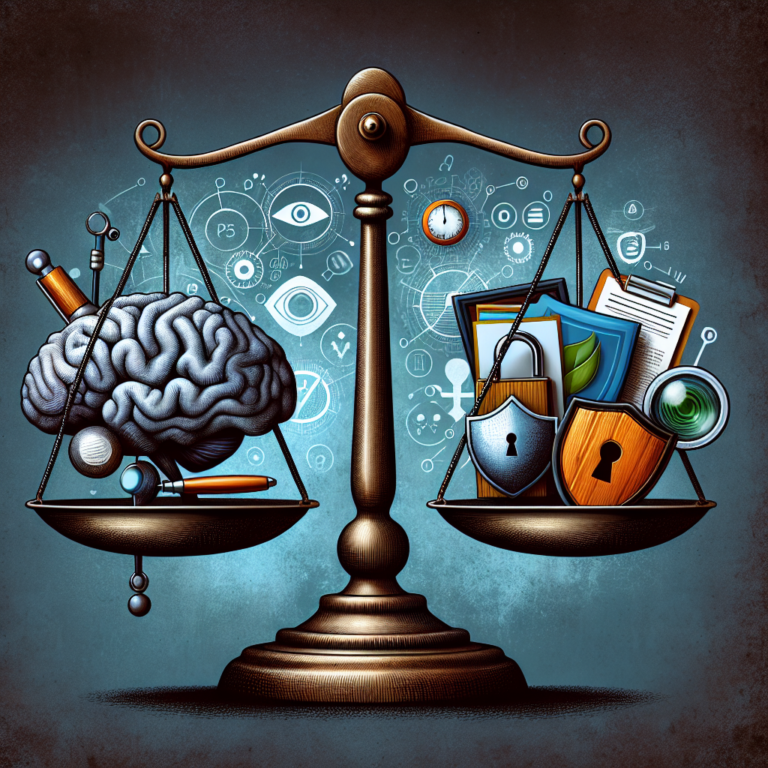
Introduction
In today’s fast-paced world, emotional intelligence (EI) has emerged as a crucial competency for personal and professional success. Unlike traditional IQ, which measures cognitive abilities, emotional intelligence focuses on understanding, utilizing, and managing emotions—both our own and those of others. Unlocking emotional intelligence empowers individuals to enhance their well-being, improve relationships, and achieve better outcomes in various spheres of life. In this article, we will explore essential strategies for effective emotional regulation, making the concept both actionable and accessible.
Understanding Emotional Intelligence and Regulation
What is Emotional Intelligence?
Emotional intelligence encompasses the ability to perceive, use, understand, and manage emotions. It is typically divided into four core components:
- Self-awareness: Recognizing one’s emotions and how they affect thoughts and behavior.
- Self-regulation: The ability to manage one’s emotional reactions and thoughts.
- Social awareness: Understanding the emotions of others, including empathy.
- Relationship management: The ability to maintain positive relationships and inspire others.
Why is Emotional Regulation Important?
Effective emotional regulation is critical because it allows individuals to respond appropriately to various situations, mitigating negative outcomes like stress and conflict. Studies have shown that high emotional intelligence leads to better job performance, improved relationships, and enhanced mental health.
Strategies for Effective Emotional Regulation
1. Practice Mindfulness
Mindfulness involves being present in the moment and observing thoughts and feelings without judgment. Integrating mindfulness practices into daily routines can greatly enhance emotional regulation.
Case Study: Corporate Mindfulness Programs
A large tech company implemented mindfulness training for its employees, resulting in a 32% reduction in stress levels and a 28% increase in focus and productivity. By embracing mindfulness, employees felt more equipped to regulate their emotional responses during challenging situations.
2. Build Self-Awareness
Understanding your emotions is the first step in managing them effectively. Tools like journaling and situational reflection can aid in developing self-awareness.
Table 1: Self-Awareness Techniques
| Technique | Description |
|---|---|
| Journaling | Writing down thoughts and feelings to recognize patterns. |
| Feedback | Seeking constructive criticism from trusted colleagues. |
| Emotional Check-ins | Regularly assessing your emotional state throughout the day. |
3. Develop Coping Strategies
Identifying healthy coping mechanisms is essential for emotional regulation. Techniques such as deep breathing, progressive muscle relaxation, and physical activity can provide relief during emotionally charged moments.
Case Study: Stress Management Workshops
A non-profit organization held workshops focused on coping strategies for emotional regulation. Participants learned techniques like deep breathing and visualization. Post-workshop surveys indicated a 45% improvement in the ability to manage stress effectively.
4. Foster Empathy
Empathy allows us to connect with others and understand their emotional states, enhancing social awareness and relationship management.
Role-Playing Scenarios
Engaging in role-playing scenarios can develop empathy. For example, employees can swap roles to better understand their colleagues’ perspectives.
5. Set Emotional Regulation Goals
Setting specific goals can help track progress in emotional regulation. Whether it’s improving responses during stressful meetings or enhancing communication skills, quantifying goals provides a roadmap for growth.
Table 2: Goal Setting for Emotional Regulation
| Goal | Action Steps | Expected Outcome |
|---|---|---|
| Improve reaction to stress | Practice deep breathing exercises before meetings | Decreased stress response |
| Enhance communication skills | Enroll in a public speaking course | More effective interactions |
The Importance of Emotional Regulation in Leadership
Leadership and Emotional Intelligence
Leaders with high emotional intelligence can inspire and motivate their teams effectively. By regulating their emotions, they set a positive tone within the group.
Case Study: Transformational Leadership
A notable CEO transformed a struggling organization by applying emotional intelligence strategies. By openly sharing emotions and encouraging team feedback, he fostered a culture of trust and collaboration, leading to increased employee satisfaction and productivity.
Conclusion
Unlocking emotional intelligence through effective regulation is not just a personal journey; it’s a transformative process that can lead to enriched relationships and successful outcomes. By integrating strategies such as mindfulness, enhancing self-awareness, and fostering empathy, individuals can navigate life’s emotional complexities with greater ease. Remember, emotional intelligence is a skill that can be developed and nurtured over time.
FAQs
1. What is emotional intelligence?
Emotional intelligence is the ability to perceive, understand, and manage emotions in oneself and others.
2. How can I improve my emotional regulation?
Practicing mindfulness, building self-awareness, and identifying healthy coping strategies are effective ways to improve emotional regulation.
3. Why is emotional intelligence important in the workplace?
High emotional intelligence in the workplace can enhance communication, collaboration, and overall job performance.
4. Can emotional intelligence be developed?
Yes, emotional intelligence is a skill that can be cultivated through practice and training.
5. How do emotions affect decision-making?
Emotions can significantly impact decision-making processes; understanding and regulating emotions can lead to more rational and beneficial choices.
Unlocking Emotional Intelligence: Strategies for Effective Regulation is a journey worth pursuing. Equip yourself with these strategies to enhance not only your emotional intelligence but also your overall quality of life.















